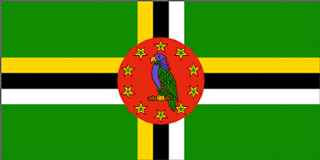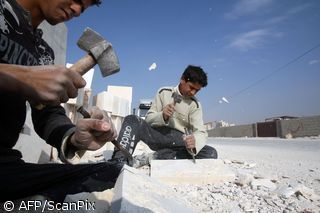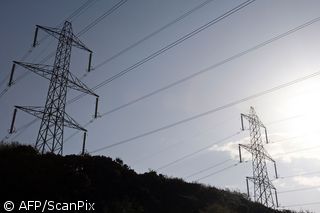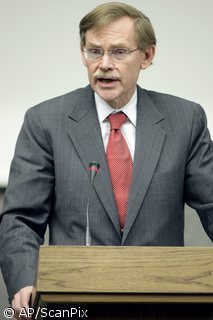EASTERN EUROPE AND KAZAKHSTAN: NEW HORIZONS OF COOPERATION
Published:
1 November 2003 y., Saturday
In 2004 ten of Eastern and Central European countries (ECE) will enter the European Union; it will be record quantity of new members for all the EU history.
Positive and evident experience of Single Europe members urges on potential members to meet a number of necessary requirements for of the Western-European investments inflow and therefore possible increase of living standards at present or in prospects.
The entering of these countries to the European Union can benefit not only them, but also traditional partners of Central and Eastern Europe such as Kazakhstan. Now available investments inflow from the EU members and recent the Brussels grants allowed to recover the some economic sectors and to increase the export level with other states, including Kazakhstan.
For example, the purchase by German “Volkswagen” rather unprofitable in the beginning of 1990s automobile factory “Skoda” in Czech Republic and some affiliated companies in Slovakia. The company has already created number of dealers in Republic of Kazakhstan. Working on prospect, it often signs leasing agreements with business partners.
The European companies investments to Polish economy allowed to develop hi-tech manufactures: computer production, video-audio techniques. Due to the Western technology and the low cost price the goods are attractive not only in the CIS, but in Europe.
In Hungary cooperation of automobile factory «Ikarus» with Swedish company "Volvo" allowed to improve bus manufacture. The trade mark is traditionally well-known in the former Soviet republics.
The European partners’ investments to Romanian economy were more helpful than for other Eastern European states. After the disintegration of the single economic market of socialist countries the state lost not only in economic, but also in political sphere.
Mainly due to the Western help Romania managed to support enterprises and keep workplaces, and that in turn it lowered social excitements and interethnic collisions. France, the active and developed EU member invested Romanian oil sphere that allowed to improve oil and gas refining and to increase hydrocarbons import volume from the Caspian sea and Siberia. Romania considers Kazakhstan as the main oil partner in the CIS except Russia. According to Romanian government the Caspian oil should be transported to Europe via Romanian sea ports in Black Sea. That was the aim of Romanian President Emil Constantinescu’s visit to Kazakhstan in the end of 1990s.
Investments to Slovenia and Bulgaria allowed to increase traditional production – the household chemical goods, utensils, pharmaceutics, goods which are popular in our country. Slovenian pharmaceutical giant – company "KRKA" opened number of joint ventures in Kazakhstan, creating workplaces for our citizens.
The Baltic States broke a record in attracting investments among the Eastern European countries. This allowed to quickly pass unpleasant, but necessary transformational processes in economic and political sphere. Finland and Germany created many joint ventures in Estonia and Latvia, thus improved competitiveness of the Baltic goods, many of which are exported mainly to the CIS countries. For example, in Latvia the Riga diesel factory delivers locomotives and cars, qualitative and inexpensive diesel stations which are attractive for the CIS countries. There are a lot of joint ventures both in Kazakhstan and the Baltic States. The activity of association «KazBalt» is very beneficial for the partners.
Moreover, in New Europe delegates from the Eastern European states will have influence in the decision-making process. It is important to pay attention to strengthening cooperation with all Eastern European countries.
Šaltinis:
KAZINFORM
Copying, publishing, announcing any information from the News.lt portal without written permission of News.lt editorial office is prohibited.
The most popular articles
 An International Monetary Fund (IMF) mission led by Mr. Hunter Monroe of the IMF’s Western Hemisphere Department visited Dominica during January 18-28 for the annual Article IV discussions on economic developments and macroeconomic policies.
more »
An International Monetary Fund (IMF) mission led by Mr. Hunter Monroe of the IMF’s Western Hemisphere Department visited Dominica during January 18-28 for the annual Article IV discussions on economic developments and macroeconomic policies.
more »
 Experts in agriculture and government authorities coincided in requesting new management mechanisms and market regulation to protect the farming sector from the price crisis and enable generational changeover in rural areas at the European Congress of Young Farmers, organised by the ASAJA-Seville agricultural organisation.
more »
Experts in agriculture and government authorities coincided in requesting new management mechanisms and market regulation to protect the farming sector from the price crisis and enable generational changeover in rural areas at the European Congress of Young Farmers, organised by the ASAJA-Seville agricultural organisation.
more »
 Immediate action is required to solve Europe's skills deficiencies and give Europeans a better chance of labour market success in the future, says an independent expert report published by the European Commission today.
more »
Immediate action is required to solve Europe's skills deficiencies and give Europeans a better chance of labour market success in the future, says an independent expert report published by the European Commission today.
more »
 The European Investment Bank (EIB) is lending EUR 15.5 million to upgrade water supply and wastewater treatment in the City of Mykolayiv (southern Ukraine) and EUR 100 million to finance small and medium-sized investments in the areas of SMEs, energy efficiency and the environment in Ukraine.
more »
The European Investment Bank (EIB) is lending EUR 15.5 million to upgrade water supply and wastewater treatment in the City of Mykolayiv (southern Ukraine) and EUR 100 million to finance small and medium-sized investments in the areas of SMEs, energy efficiency and the environment in Ukraine.
more »
 The European Commission can confirm that on 20 January 2010 Commission officials carried out targeted inspections at the premises of producers of Flexible Alternating Current Transmission Systems (FACTS).
more »
The European Commission can confirm that on 20 January 2010 Commission officials carried out targeted inspections at the premises of producers of Flexible Alternating Current Transmission Systems (FACTS).
more »
 The European Commission has authorised today under the State aid rules a Lithuanian scheme worth LTL 10 million (approximately EUR 2.9 million) aimed at supporting farmers who encounter difficulties as a result of the current economic crisis.
more »
The European Commission has authorised today under the State aid rules a Lithuanian scheme worth LTL 10 million (approximately EUR 2.9 million) aimed at supporting farmers who encounter difficulties as a result of the current economic crisis.
more »
 The effects of the global food, fuel and economic crisis would be felt by Africa’s people for some time yet and it was important to persist with efforts to protect the most vulnerable while laying the foundations for future productivity and growth, World Bank Group President Robert B. Zoellick said Tuesday.
more »
The effects of the global food, fuel and economic crisis would be felt by Africa’s people for some time yet and it was important to persist with efforts to protect the most vulnerable while laying the foundations for future productivity and growth, World Bank Group President Robert B. Zoellick said Tuesday.
more »
 Mongolia’s herders have learnt a hard lesson this winter; a lesson that can perhaps be applied to managing Mongolia’s economy.
more »
Mongolia’s herders have learnt a hard lesson this winter; a lesson that can perhaps be applied to managing Mongolia’s economy.
more »
 DnB NORD Bankas, the leader of the country’s in investment products market, raises initial margin ratio for repurchase deals for most actively traded Lithuanian and Estionian shares.
more »
DnB NORD Bankas, the leader of the country’s in investment products market, raises initial margin ratio for repurchase deals for most actively traded Lithuanian and Estionian shares.
more »
 With over 23 million unemployed in the Europe Union and the jobless figure having risen in every member state since last year, how Europe is coping with the crisis and the effect on pension systems were discussed on Thursday 28 January.
more »
With over 23 million unemployed in the Europe Union and the jobless figure having risen in every member state since last year, how Europe is coping with the crisis and the effect on pension systems were discussed on Thursday 28 January.
more »